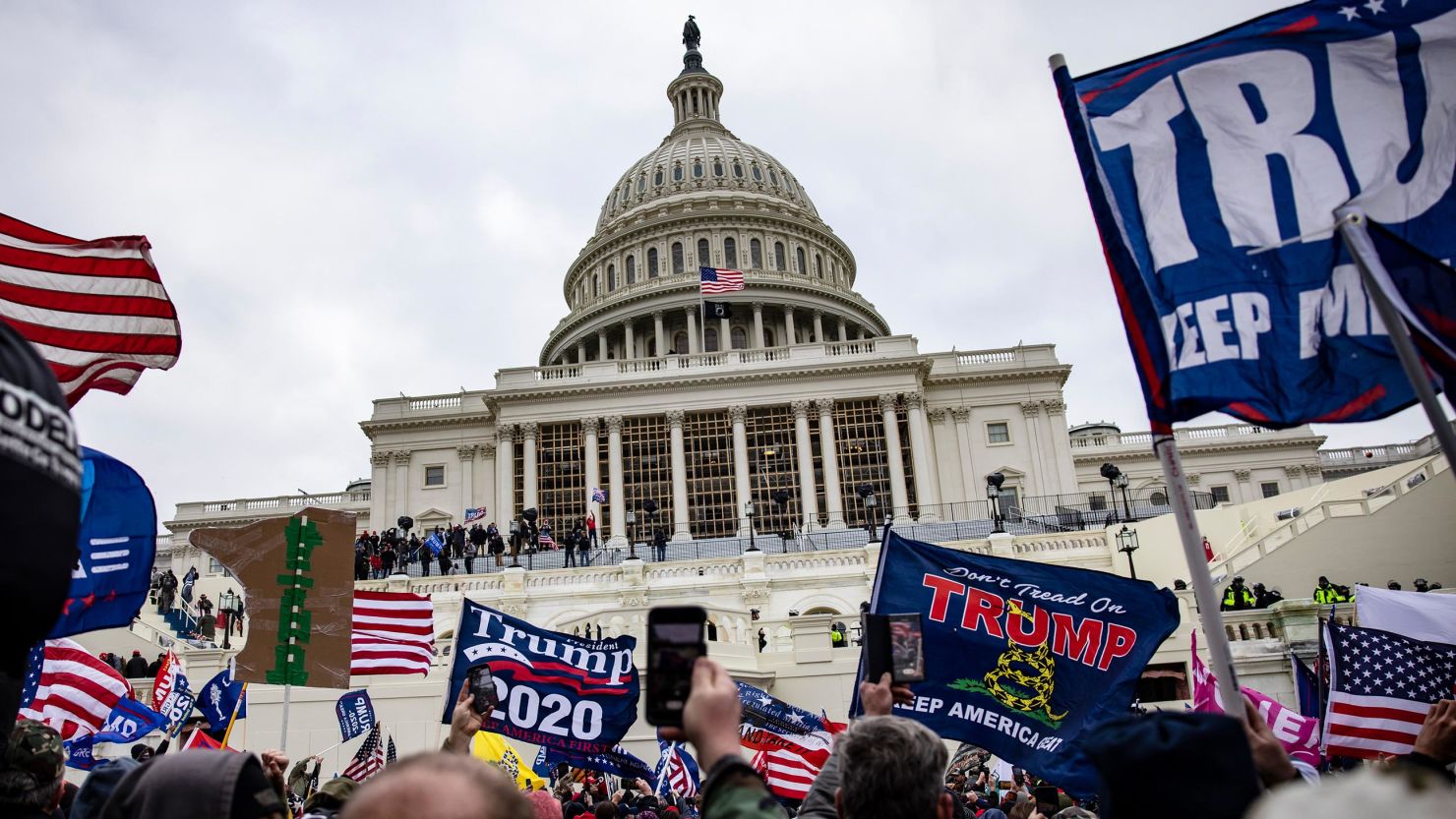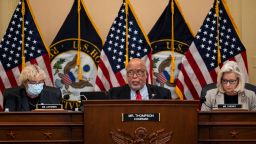Four people who staffed the pro-Trump rally at the Ellipse that preceded the deadly Capitol attack on January 6 are suing to block House investigators from obtaining their phone records.
The plaintiffs also reveal in the lawsuit that they and other witnesses have answered extensive questions from the House select committee about how the rally came together and what they saw and heard that day.
Justin Caporale, Tim Unes, Maggie Mulvaney and Megan Powers, who describe themselves as vendors who staffed the rally, say they’ve turned over thousands of documents and sat for a total of 15 hours of interviews with the committee investigating the attack.
The lawsuit, filed in federal court in New Jersey, argues that the committee’s subpoena to Verizon for phone records is too broad. It also challenges the legitimacy of the House select committee. The lawsuit is the ninth known legal challenge to the committee’s inquiry.
“The Plaintiffs answered every single question about what happened at the event, who spoke, who the Plaintiffs spoke with, and when. If Congress wanted to know anything more about the Plaintiffs’ brief involvement with the events it is allegedly investigating, it needed only have asked,” Matthew Moench and Edward Greim, lawyers for the group, wrote.
House investigators have already asked – and the witnesses say they answered – questions about how the rally plans developed, who organizers knew would be there and what was expected from speakers, and what they witnessed that day. The plaintiffs in the lawsuit say they also “fully disclosed” to the committee payments they received and made.
Even when they tried to decline to answer questions, they realized other witnesses had already spoken extensively to the House about the rally, the group says in the lawsuit.
The committee was “asking them to speculate about what other people had intended in their remarks about individuals who had been considered and then rejected as Rally speakers, pre-Rally discussions with Rally organizers about the content and speakers for the Rally, and lists of attendees and ‘VIPs’ who attended the Rally,” they wrote in the court filing.
“It became clear that other Rally witnesses no longer desired to assert constitutional protections over this information, and had already produced it,” the group added.
The select committee did not immediately respond to a request for comment.
Several speakers at the January 6 rally at the Ellipse had encouraged the hundreds of gathered to fight against the congressional certification of Joe Biden’s election as President.
Speakers, organizers and “VIP” attendees have become of particular interest to both House and federal criminal investigators trying to learn whether groups of people planned in advance or worked together to obstruct the congressional session.
The House is especially focused on learning about former President Donald Trump, who spoke at the event, and his and his top advisers’ discussions.
In addition to their interviews, the House committee issued subpoenas to Verizon in late November. Those ask for phone subscriber details and logs of the numbers they were calling and texting. Verizon alerted the witnesses to the subpoenas, which prompted them to go to court.
The group says in their complaint that the information being subpoenaed amounts to “a virtual CAT-scan of the Select Committee’s political opposition,” noting it could even sweep up data associated with members of Congress.
Eight other major right-wing figures and Trump advisers have sued over the committee’s investigation, including Trump, his former chief of staff Mark Meadows, outside lawyers John Eastman and Cleta Mitchell, and his former national security adviser Michael Flynn.
Nearly all the suits so far have been filed in DC District Court, which has already rejected Trump’s challenge to the House’s inquiry and signed off on the committee’s existence.







